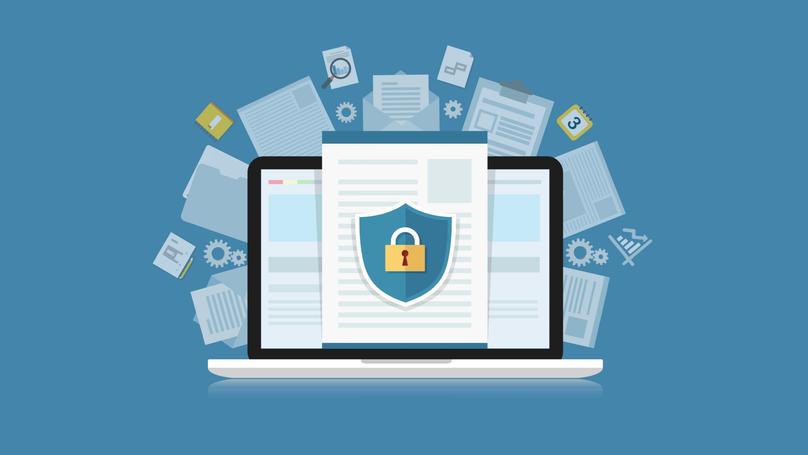The Role of Privacy: Ensuring and Enhancing Customer Data Protection
Safety is the main issue and trend on the agenda and is not inferior to ecology.

In a fiercely competitive market, businesses are driven to adopt a more responsible approach to understanding their audience. The most effective way to achieve this is by gathering comprehensive information, including personal and private details. Not all consumers, however, are happy with this approach. Media Monks reported that approximately 48% of people worldwide have stopped using a company's services or products at least once due to privacy concerns. Likewise, consumers not only experience privacy concerns but also distrust: the reputation of companies that faced privacy issues experienced a threefold loss of consumers, whilst those that implemented data protection innovations saw up to a fivefold increase in customer loyalty.
Privacy policy discussions are gaining momentum in government meetings worldwide, and more brands are stepping up with innovative, flexible, and effective approaches to integrate privacy into their business models. We will guide you on leveraging personal data protection to build a brand, highlight global cases, and provide practical tips on enhancing data protection.
What confidentiality provides: trends and cases

If you are a business owner or marketer, you know why brands collect user data. First and foremost, to better serve consumers, aiming to create highly relevant personalised content. This approach strengthens the trust between the brand and its audience. Since we exist in an era dominated by technology and the Internet, data collection mechanisms have become integral to most services, websites, and applications. Consequently, news about a company breaching its privacy policy and unauthorised data sharing or publication elicits the highest number of views and outrage. Hence, leveraging personal data in marketing and business constitutes a delicate process, necessitating robust and dependable tools. Otherwise…
Therefore, Walmart prioritises confidentiality from the outset while developing organisational structures. This involves vigilant monitoring of the technological landscape and thorough scanning for potential vulnerabilities. The company is enhancing the security of data collection tools rather than their storage. Thanks to this, the vulnerability of information itself is minimised. In May 2023, Google announced the "end of the password era": they intend to introduce passkeys to replace them. These methods safeguard information, including fingerprint scanning, facial recognition, and sending codes to dedicated applications or mobile phones. In a nutshell, the lack of a single, easily guessable, or forgeable stable password renders data theft nearly impossible today. These same technologies are used, for instance, by Apple, which employs similar technologies in its products but on a local scale. Additionally, Google recently introduced a new policy that mandates companies to disclose how they collect and protect customer data.
As mentioned, a privacy policy is not only a challenge to modern technology but also a tool for developing brand image and business ethics. Just as today's consumers verify whether a brand is environmentally friendly and dedicated to utilising sustainable materials, they also assess how brands handle their personal information, digital security reputation, and operational practices. Cybersecurity is a growing requirement and value in the market, and taking care of it can even significantly increase sales.
Why would you, as a business, need to improve your privacy policies and safeguard your data? Apart from the obvious consequences, such as hefty fines and, in some cases, imprisonment.
-
To gain a competitive advantage. Not all companies care about data security as much as you could if you focus on the interests of the segment of your audience that actively uses digital devices and is the primary source of your data. In a way, privacy policies represent a new dimension in marketing, where companies now compete against each other individually.
-
Improve the quality of service. Enhancing data security consistently accompanies the adoption of new technologies and digital projects. For example, electronic medical records were introduced in the healthcare sector. Individuals can now access their medical information, including test results, without contacting the institution directly. Medical records are securely stored on separate servers and password-protected, ensuring safety and convenience.
-
The ability to provide consumers with novel and distinctive products. This follows on from the previous one. The public's demand for privacy protection drives the expansion of the Internet of Things while simultaneously fostering the development of new products, devices, and services. For example, users could be provided with enhanced protection as an additional service, similar to how antivirus software providers do.
-
The ability to obtain more detailed and useful information. The greater the quality of your privacy policy, the more willing a person will trust you with their "secrets" and data that they would not normally share on social media. This is a way to gain a deeper understanding of your target audience and develop more effective business models and marketing strategies based on this.
Likewise, ensuring robust information security for users involves creating an environment that respects their privacy and fosters a feeling of safety. Remember the modern world and what we discussed earlier: Today, all services and applications aim to "scrutinise" us and almost delve into our souls. You can frame the privacy policy as a tranquil haven, shielding users from prying eyes and ensuring their secrets remain undisclosed. It is a place where they can relax and stop being the object of constant marketing surveillance.
Undoubtedly, prioritising customer privacy is a way to build the trust of your audience and, therefore, achieve not only short-term but long-term success. In practice, this can be done in various ways. Still, certain approaches and principles should be relied upon to calculate the formula for the ratio of costs, risks, and rewards properly.
What you can do: ways and strategies to increase privacy for business

When an ordinary user discusses privacy, they typically consider three key components at once:
-
Security. Should they not be worried that their data will be shared with third parties or be lost? How well are you protecting them? What guarantees do you give? What are you doing about this?
-
Control. Can the user understand how you process and use their data and what data they want to collect? It's crucial to recognise that in the digital age, where the prevalent phenomenon of "clip thinking" prevails, users often lack the time and focus to examine all these questions thoroughly. Consequently, the third point logically follows from this.
-
Convenience. How easy is it to check what data a company is collecting and, if anything, how you can stop it? How quickly are "checks" carried out?
Typically, people are only willing to provide more access to their data if an equivalent "trade" is offered. For instance, a company might offer a bonus or discount in exchange for collecting and retaining detailed information about its customers. It is similar to a lead magnet: the client gives you their email address, and you provide them with a trial subscription. It is also possible to use customer data to benefit the customers themselves; for instance, some GPS devices and applications do not just collect data about the user's location but also reveal the situation on the roads and provide users themselves with the opportunity to exchange personal data.
Lectera’s Online Courses by topic
When it comes to enhancing data security for your business, there are several effective steps you can take. Here are some recommendations:
- Look closely at your company's existing privacy practices and see how you can improve them. For example, you may be able to opt out of collecting data if you don't actually use it. Additionally, ensure that anyone can understand the rules and that the policy explanation is clear and understandable. Encourage your PR department to include data protection in your advertising or values list and communicate this to the public.
- Hire highly qualified data protection specialists. Experienced and responsible personnel monitoring all systems and promptly identifying threats significantly enhance a company's privacy policy. A business should not cut corners regarding this, as the cost of correcting errors and restoring reputation will be considerably higher in the future.
- Let your clients know they can influence sensitive information collection. To increase transparency and build trust, provide them with data management features through your website or apps.
- Read reviews of your products and company. If you have ever encountered a privacy issue or your audience worries about it, it's easy to find out with a simple Google search. Make no mistake-these things are easily discovered, which isn't good. You must identify and fix potential problems if you cannot prevent them, so regularly monitor review sites and customer requests.
- Comply with the official privacy policy requirements in your country. This is the minimum you must do to avoid fines, especially considering that they increased by 113% in 2021 alone.
- Read other companies' negative and positive cases regarding information security. There have been numerous instances in history when user data became vulnerable and leaked, for example, to competitors or into an open network. Ensure this doesn't happen in your company. It is not without reason that they say it is best to learn not from your own mistakes but from others.
Another crucial tip is to simplify wherever possible without compromising security. Cutting-edge technologies, groundbreaking projects, and innovative solutions that ensure audience protection and offer exciting prospects are undoubtedly valuable. However, it's essential to remember that the average person lacks expertise in the IT area and faces constraints in terms of time, resources, and motivation to grasp new concepts. Simply put, complex products and innovation can be intimidating. As a result, many pensioners, for instance, still do not have electronic medical records or prefer cash over bank cards. Ensure that privacy protection is stable, reliable and comfortable for all parties, especially customers because customer service takes precedence.
Share this with your friends via:
Latest News

In the UK, £23 million has been allocated for the expansion of the EdTech Testbed program — pilots of educational technologies in schools and colleges.

In the US, Tuskegee University announced the launch of Tuskegee University Global Campus (TUGC) — a new online platform for distance learning.

A significant stage in the development of the alternative education system has begun in West Northamptonshire in the UK: the County Council is actively calling on parents, guardians, and trustees to participate in shaping the future of this key area.

Outwoods Primary School in Atherstone, Warwickshire, having experienced deep sadness after the loss of their famous cat, Silla, has found solace in a new pet – a Maine Coon named Aloysius O’Hara.

In modern universities, artificial intelligence, and in particular ChatGPT, is rapidly transforming from a controversial tool into a full-fledged student assistant.












 Spring skills audit: what to remove, strengthen, and “sow” in learning
Spring skills audit: what to remove, strengthen, and “sow” in learning
 9 Career Mistakes Young Professionals Make
9 Career Mistakes Young Professionals Make
 £23 million allocated for the expansion of EdTech Testbed in the UK
£23 million allocated for the expansion of EdTech Testbed in the UK
 Test: How Psychologically Mature Are You? Check Your Inner Foundation.
Test: How Psychologically Mature Are You? Check Your Inner Foundation.
 Test. Check Your Social Media Dependency Level!
Test. Check Your Social Media Dependency Level!
 Test: What Business is Right For You?
Test: What Business is Right For You?
